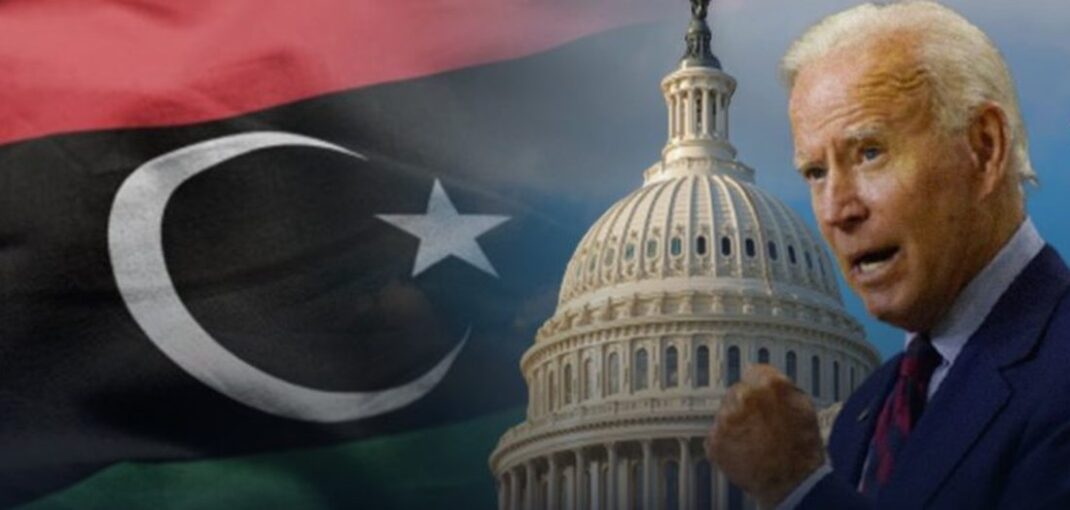By Michael E. O’Hanlon & Federica Saini Fasanotti

 How should the new administration of Joe Biden think about Libya? That country has tried for a decade to create some semblance of stability in the aftermath of the fall of Gaddafi almost a decade ago.
How should the new administration of Joe Biden think about Libya? That country has tried for a decade to create some semblance of stability in the aftermath of the fall of Gaddafi almost a decade ago.
There has been some positive movement by the various parties in Libya of late.
In Geneva this fall, after more than a year of talks, two main groups in the country reached a ceasefire that, if honored, could be the first step toward peace. There remains a difficult road ahead as the text of the ceasefire accord leaves space for many divergent meanings.
It will have to be fully backed by the competing power centers in Tripoli and Tobruk.
The first is the formal but weak coalition in the west known as the Government of National Accord led by Prime Minister Fayez Serraj, and the latter is a number of militias under Khalifa Haftar in the east known as the Libyan National Army.
The first is supported by the United Nations, Turkey, and Qatar, while the second is supported by the United Arab Emirates, Russia, France, and Egypt.
Libya has money to pay for its own needs, in the form of oil, if a way can be found to keep it flowing. Libya needs a formula that most or all major parties can accept for how to divide the revenues.
The country is situated at the core of the Mediterranean basin, just in front of Italy, with ports and the chance to control a huge part of the sea.
For all the chaos of the last decade, the people of Libya do not face the kind of mass starvation or other woes seen in many conflict zones.
The two counterparts in Libya have decided that the foreign military groups active on the ground, including Syrian militias, Turkish militias, the Wagner Group from Russia, and the Sudanese and Chadian units for both the Government of National Accord and the Libyan National Army must leave.
This action would allow better control of the local militias and the chance for them to return weapons.
At the moment, however, neither Turkey nor Russia seem like they will leave. A strong vision for Libya to be run by its people is needed if these outside actors are to be in line.
Building on a task force report by the Brookings Institution, we advocate a transparent system where the considerable oil revenues in Libya could be distributed fairly among those groups that provide local services in the various cities across the country.
This includes even groups associated with militias, provided that their behavior met modest standards of fairness and nonviolence.
In our view, and that of some of our coauthors, a United Nations observation mission can assist by monitoring oil facilities, infrastructure, and lines of demarcation between the territorial zones of certain militias.
It can also monitor the fledgling Libyan Coast Guard, an institution that foreign donors can think about bolstering.
Other observers, including development specialists on the ground, would confirm if and when resources were used correctly and in a way that justified the resources from central coffers to the cities.
Over time, regional centers for the activities of the various militias could be developed, not to create a national defense unit, as had been tried almost a decade ago, but to allow one to emerge as a collection of local security forces.
Fortunately, Haftar has by now been pushed back to the eastern half of the country, after threatening Tripoli part of the last two years. But he remains influential and powerful.
Given Haftar’s strength today, a mixed model might be needed.
Perhaps a city-based approach to governance, security, and sharing of oil wealth still has relevance.
But it might have to be promoted first for the country’s west and south while Haftar retains a certain degree of control in the east, as a recognition of the realities on the ground and the practical distributions of power in the country.
Libyans themselves will insist on working on the specifics of any such power sharing deal, as they should.
The important thing is to get the broad concept right, with:
(a) power sharing,
(b) revenue sharing,
(c) a permanent ceasefire,
(d) an outside observation force, and
(e) get real talks going.
This is a tough lift, but not one that requires American boots on the ground or big doses of American dollars or European euros.
As the Biden team looks to reinvigorate American multilateralism and diplomacy after four years of Trump, Libya is not a bad place to start.
***
Michael E. O’Hanlon – Director of Research, Foreign Policy Co-Director, Center for Security, Strategy, and Technology, The Sydney Stein, Jr. Chair – Africa Security Initiative Senior Fellow.
Federica Saini Fasanotti is a nonresident fellow in the Center for Security, Strategy, and Technology in the Foreign Policy program at the Brookings Institution. She is also a senior associate at ISPI in Milan.
___________
BROOKINGS




